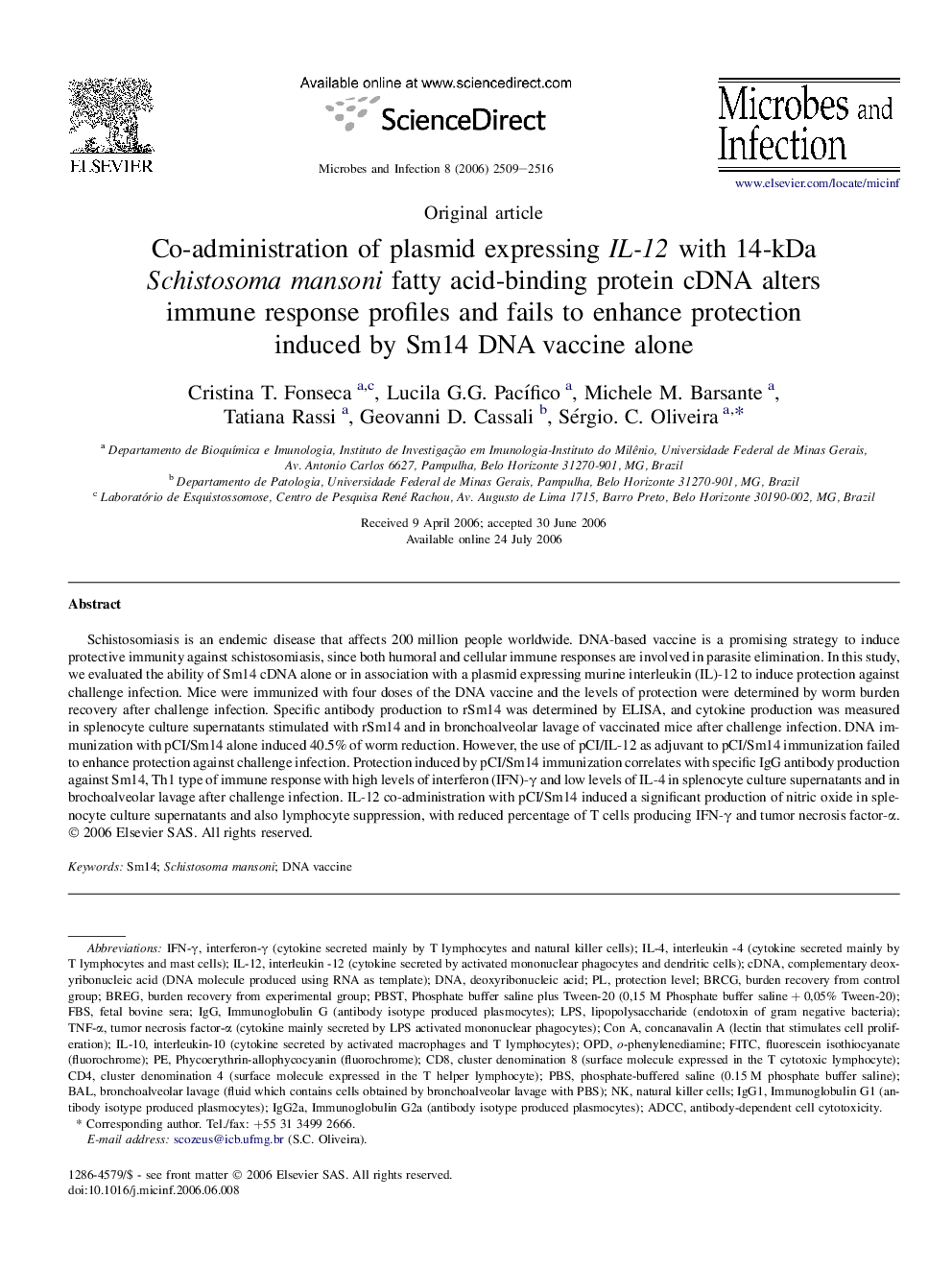| Article ID | Journal | Published Year | Pages | File Type |
|---|---|---|---|---|
| 3415827 | Microbes and Infection | 2006 | 8 Pages |
Abstract
Schistosomiasis is an endemic disease that affects 200 million people worldwide. DNA-based vaccine is a promising strategy to induce protective immunity against schistosomiasis, since both humoral and cellular immune responses are involved in parasite elimination. In this study, we evaluated the ability of Sm14 cDNA alone or in association with a plasmid expressing murine interleukin (IL)-12 to induce protection against challenge infection. Mice were immunized with four doses of the DNA vaccine and the levels of protection were determined by worm burden recovery after challenge infection. Specific antibody production to rSm14 was determined by ELISA, and cytokine production was measured in splenocyte culture supernatants stimulated with rSm14 and in bronchoalveolar lavage of vaccinated mice after challenge infection. DNA immunization with pCI/Sm14 alone induced 40.5% of worm reduction. However, the use of pCI/IL-12 as adjuvant to pCI/Sm14 immunization failed to enhance protection against challenge infection. Protection induced by pCI/Sm14 immunization correlates with specific IgG antibody production against Sm14, Th1 type of immune response with high levels of interferon (IFN)-γ and low levels of IL-4 in splenocyte culture supernatants and in brochoalveolar lavage after challenge infection. IL-12 co-administration with pCI/Sm14 induced a significant production of nitric oxide in splenocyte culture supernatants and also lymphocyte suppression, with reduced percentage of T cells producing IFN-γ and tumor necrosis factor-α.
Keywords
Related Topics
Life Sciences
Immunology and Microbiology
Immunology
Authors
Cristina T. Fonseca, Lucila G.G. PacÃfico, Michele M. Barsante, Tatiana Rassi, Geovanni D. Cassali, Sérgio. C. Oliveira,
